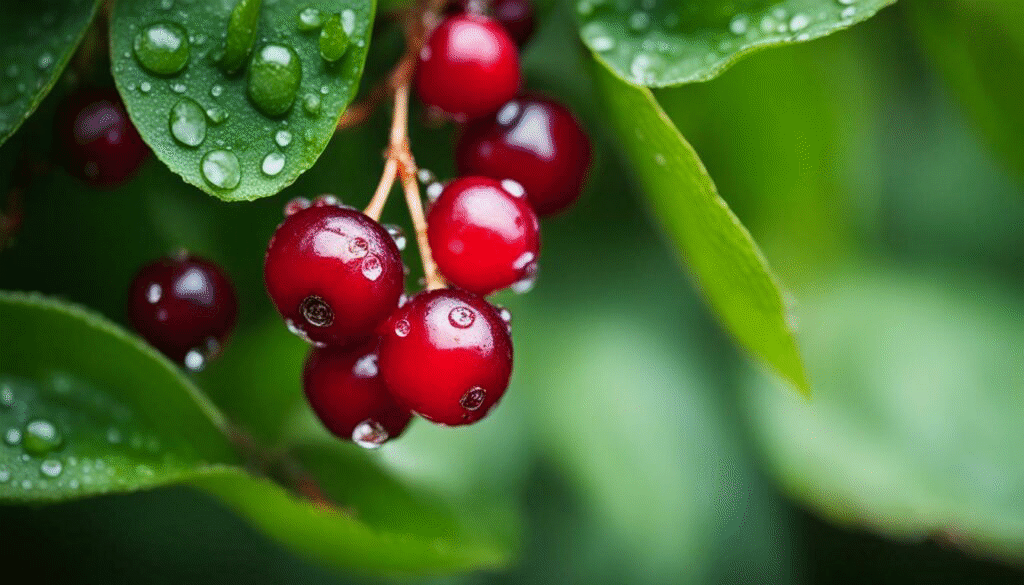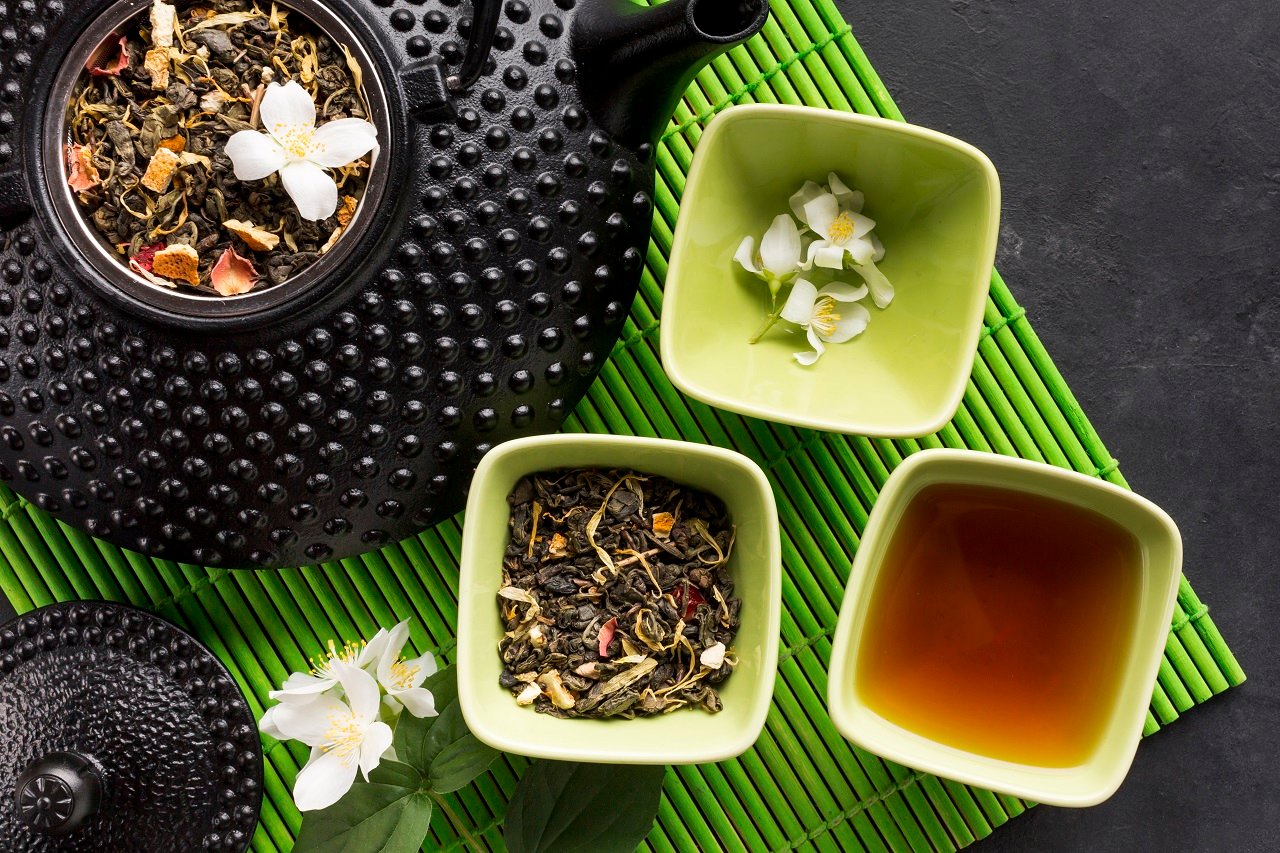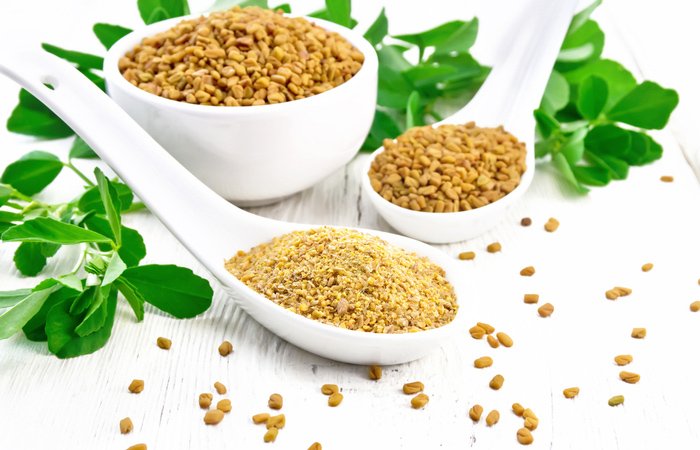Safe Herbs during Pregnancy
Pregnancy is a special time when expectant mothers need to be cautious about what they put into their bodies, but there are several safe herbs that can be beneficial during this time.
Key Takeaways:
- Ginger is a natural remedy for morning sickness.
- Red raspberry leaf can help enhance pregnancy outcomes.
- Echinacea strengthens immunity during pregnancy.
- Cranberry prevents urinary tract infections.
- Chamomile promotes relaxation and better sleep.
During pregnancy, it’s important for expectant mothers to prioritize their health and well-being. This includes being mindful of what they consume, as certain substances can have an impact on the developing baby. However, there are safe herbs that can be used to alleviate common discomforts and problems that arise during pregnancy.
The Benefits of Using Safe Herbs during Pregnancy
Using safe herbs during pregnancy can offer a natural and effective way to address common discomforts and promote overall well-being for both mom and baby. These herbs have been used for centuries and are known for their medicinal properties. By incorporating these herbs into your pregnancy routine, you can experience various benefits that support your health throughout this special time.
One of the main advantages of using safe herbs during pregnancy is their ability to alleviate common discomforts. For example, ginger is well-known for its effectiveness in treating morning sickness. It can help reduce nausea and vomiting, providing relief for expectant mothers. Incorporating ginger into your diet or drinking ginger tea can be an excellent natural remedy for this bothersome symptom.
Another herb that can be beneficial during pregnancy is red raspberry leaf. This herb has been used for centuries to tone the uterus and prepare the body for labor. It is rich in vitamins and minerals that support overall pregnancy health. Red raspberry leaf can also potentially improve pregnancy outcomes, making it a valuable addition to your pregnancy regimen.
In addition to ginger and red raspberry leaf, other safe herbs that can enhance your pregnancy experience include echinacea, cranberry, and chamomile. Echinacea is known for its immune-boosting properties and can help prevent and treat colds during pregnancy. Cranberry is highly effective in preventing urinary tract infections, which are more common during this time. Chamomile, on the other hand, promotes relaxation and better sleep, which are crucial for the well-being of both mom and baby.
It is important to stress that while these herbs have been deemed safe for use during pregnancy, it is always essential to consult with your healthcare provider before incorporating them into your routine. Your healthcare provider will be able to provide personalized guidance based on your specific health needs and circumstances. They can also advise you on the appropriate dosage and duration of use for each herb.
| Safe Herbs | Benefits |
|---|---|
| Ginger | Treats morning sickness |
| Red Raspberry Leaf | Tones uterus and potentially improves pregnancy outcomes |
| Echinacea | Strengthens immunity and prevents/treats colds |
| Cranberry | Prevents urinary tract infections |
| Chamomile | Promotes relaxation and better sleep |
Safe herbs during pregnancy can be a wonderful addition to your overall prenatal care. They offer a natural alternative to traditional medications and can provide relief from common discomforts. By consulting with your healthcare provider and incorporating these safe herbs into your pregnancy routine, you can experience their many benefits and enjoy a healthier, more comfortable pregnancy journey.
Ginger: A Natural Remedy for Morning Sickness
Ginger is a well-known herb that has been used for centuries to relieve nausea and vomiting, making it an excellent natural remedy for morning sickness during pregnancy. Its soothing properties can help calm the stomach and reduce the urge to vomit, providing much-needed relief for expectant mothers. Whether used in the form of ginger tea, ginger capsules, or ginger candies, this herb can be a safe and effective option for managing morning sickness symptoms.
When consumed in moderation, ginger is generally considered safe for pregnant women. However, it is important to consult with your healthcare provider before incorporating ginger into your pregnancy routine, especially if you have any underlying medical conditions or are taking other medications. They can provide personalized advice based on your specific situation and help you determine the appropriate dosage and frequency of ginger consumption.
According to a study published in the “Journal of Obstetrics and Gynaecology,” ginger has been shown to significantly reduce the severity of nausea and vomiting in pregnant women compared to a placebo. The study also reported no adverse effects on the mother or baby, further supporting the safety and effectiveness of ginger as a natural remedy for morning sickness.
| Ginger | Morning Sickness | Natural Remedy |
|---|---|---|
| Relieves nausea and vomiting | Common discomfort during pregnancy | Gentle and safe option |
| Soothes the stomach | Reduces urge to vomit | Provides much-needed relief |
| Can be consumed as tea, capsules, or candies | Multiple forms available | Choose what suits you best |
In conclusion, ginger is a safe and effective herb that can help alleviate morning sickness during pregnancy. Its natural properties make it a popular choice for expectant mothers seeking relief from nausea and vomiting. However, it is essential to consult with your healthcare provider before using ginger or any other herbs during pregnancy. They can provide personalized guidance and ensure it is suitable for your individual circumstances. With proper advice and moderation, ginger can be a valuable addition to your pregnancy wellness routine.
Red Raspberry Leaf: Enhancing Pregnancy Outcome
Red raspberry leaf is a popular herb among expectant mothers due to its potential to tone the uterus, strengthen contractions, and improve overall pregnancy outcomes. It has been used for centuries to support women during pregnancy and childbirth. This natural remedy is rich in vitamins, minerals, and antioxidants that can benefit both the mother and baby.
One of the main benefits of red raspberry leaf is its ability to tone the uterus. This helps to prepare the body for labor and may reduce the risk of complications during childbirth. Studies have shown that women who consume red raspberry leaf tea or supplements during pregnancy have a reduced need for interventions such as inductions, cesarean sections, and assisted deliveries.
In addition to toning the uterus, red raspberry leaf also has a positive impact on overall pregnancy outcomes. It contains nutrients that support the health of the placenta and promote optimal fetal development. This can lead to a healthier pregnancy and a lower risk of complications for both the mother and baby.
| Benefits of Red Raspberry Leaf during Pregnancy |
|---|
| Strengthens contractions |
| Tones the uterus |
| Reduces the need for interventions during childbirth |
| Supports placental health |
| Promotes optimal fetal development |
“Red raspberry leaf has been a game-changer for me during pregnancy. It helped me have a smoother labor and delivery, and I truly believe it contributed to the overall health of my baby. I highly recommend it to any expectant mothers!” – Sarah, mother of two
It’s important to note that while red raspberry leaf is generally considered safe, it’s always best to consult with your healthcare provider before starting any new herbal regimen during pregnancy. They can provide personalized guidance based on your specific circumstances. Your healthcare provider can also recommend the appropriate dosage and duration of use for red raspberry leaf to ensure the best possible outcomes for you and your baby.
In conclusion, red raspberry leaf is a valuable herb for expectant mothers. It offers benefits such as toning the uterus, strengthening contractions, and improving overall pregnancy outcomes. However, it’s essential to consult with a healthcare provider before incorporating this herb into your routine to ensure optimal safety and effectiveness.
Echinacea: Strengthening Immunity during Pregnancy
Echinacea is a powerful herb that can help strengthen the immune system, making it an excellent choice for expectant mothers looking to avoid or treat colds during pregnancy. This herb has been used for centuries to boost the body’s natural defenses and promote overall wellness. Its immune-boosting properties can be especially beneficial for pregnant women, who may experience increased vulnerability to illnesses.
Research suggests that echinacea can stimulate the production of white blood cells, which are responsible for fighting off infections. By enhancing the immune response, echinacea can help prevent and reduce the severity of colds and respiratory infections. This is particularly important during pregnancy, as certain illnesses can pose risks to both the mother and the developing baby.
In addition to its immune-strengthening effects, echinacea has also been shown to have anti-inflammatory properties. This can help reduce inflammation in the body and alleviate symptoms such as sore throat, stuffy nose, and congestion. By reducing inflammation, echinacea can provide relief from common cold symptoms and promote a faster recovery.
It is important to note that while echinacea is generally considered safe for most pregnant women, it is always recommended to consult with a healthcare provider before starting any new herbal regimen. They can provide personalized advice and guidance based on your specific needs and medical history. Additionally, it is important to follow the recommended dosage instructions and discontinue use if any adverse reactions occur.
| Benefits of Echinacea during Pregnancy: |
|---|
| Strengthening the immune system |
| Preventing and reducing the severity of colds and respiratory infections |
| Reducing inflammation and alleviating common cold symptoms |
“Using echinacea during pregnancy can provide expectant mothers with a natural way to support their immune system and reduce the risk of catching a cold. However, it is important to remember that each person’s body is unique, and consulting with a healthcare provider is always recommended before introducing any new herbs or supplements.”
Cranberry: Preventing Urinary Tract Infections
Cranberry is a natural remedy that can help prevent urinary tract infections, a common concern for pregnant women due to changes in hormone levels and increased pressure on the bladder. The high content of proanthocyanidins in cranberries helps prevent bacteria from adhering to the urinary tract walls, reducing the risk of infection.
Including cranberry in your diet or consuming cranberry supplements can effectively lower the chances of developing a urinary tract infection during pregnancy. It is recommended to opt for unsweetened cranberry juice or cranberry extract capsules, as added sugars can affect blood sugar levels.
| Cranberry Products | Recommended Intake |
|---|---|
| Unsweetened Cranberry Juice | 1-2 glasses per day |
| Cranberry Extract Capsules | Follow the dosage instructions on the packaging or consult with your healthcare provider |
It’s important to note that while cranberry can help prevent urinary tract infections, it may not be effective in treating an ongoing infection. If you experience symptoms such as frequent urination, pain or burning during urination, or cloudy urine, it is crucial to consult with your healthcare provider for proper diagnosis and treatment.
“Cranberry has been recognized as a natural approach to prevent urinary tract infections in pregnant women due to its anti-adhesive properties.”
Preventing urinary tract infections is essential during pregnancy to maintain optimal health for both you and your baby. By incorporating cranberry into your routine and consulting with your healthcare provider, you can take proactive steps towards a healthy and comfortable pregnancy.
Chamomile: Promoting Relaxation and Better Sleep
Chamomile is a gentle herb that is known for its calming properties, making it an excellent choice for expectant mothers who are looking to relax and improve their sleep quality. This herb has been used for centuries as a natural remedy for insomnia and anxiety, providing a sense of tranquility and promoting a restful night’s sleep. The soothing effects of chamomile can help pregnant women unwind after a long day, allowing them to find peace and relaxation in preparation for the changes ahead.
[penci_video url=”https://youtu.be/xXubbYFoMAs?si=-OYJAVnep6N8HXMw” align=”left” width=”” /]
In addition to its relaxation benefits, chamomile also offers other advantages during pregnancy. It can help alleviate common discomforts such as indigestion, bloating, and muscle aches, allowing expectant mothers to find relief and feel more comfortable. The anti-inflammatory properties of chamomile can also help reduce swelling and improve digestion, supporting overall well-being during this special time.
There are various ways to incorporate chamomile into your routine. One popular method is to enjoy a warm cup of chamomile tea before bedtime. This simple ritual can create a sense of calmness and relaxation, preparing both the mind and body for a restful sleep. Other options include using chamomile essential oil in a diffuser or adding dried chamomile flowers to a warm bath for a soothing and aromatic experience.
While chamomile is generally considered safe for most pregnant women, it is still important to consult with your healthcare provider before incorporating it into your pregnancy regimen. They can provide personalized guidance based on your specific needs and medical history. By working together with your healthcare provider, you can ensure that chamomile is used in a safe and beneficial way during your pregnancy journey.
Consulting with Your Healthcare Provider
When considering using herbs during pregnancy, it is crucial to consult with your healthcare provider to ensure safety and appropriateness for your individual situation. Your healthcare provider will have a comprehensive understanding of your medical history and any pre-existing conditions that may impact the use of certain herbs. Additionally, they can provide guidance on appropriate dosages and potential interactions with any medications you may be taking.
By consulting with your healthcare provider, you can be assured that the herbs you choose are safe and effective for you and your baby. They can advise you on the specific herbs to consider based on your unique circumstances and help you make informed decisions about your pregnancy care.
Remember, every pregnancy is different, and what may be safe for one woman may not be safe for another. Your healthcare provider will be able to tailor their recommendations to your specific needs, ensuring a safe and healthy experience for both you and your baby.
Consulting with your healthcare provider is a critical step in using herbs during pregnancy. Their expertise will help ensure that you are using the right herbs, in the right way, and at the right time. Prioritizing your health and the health of your baby is essential, and your healthcare provider is your best ally in navigating the use of herbs during this important time.
| Benefits of Consulting with Your Healthcare Provider: |
|---|
| Access to expert advice |
| Individualized recommendations |
| Ensures safety for both you and your baby |
| Guidance on appropriate dosages |
| Knowledge of potential interactions |
Herbs to Avoid during Pregnancy
While there are many safe herbs for pregnant women, it is equally important to be aware of herbs that should be avoided during pregnancy due to potential risks. Some herbs can stimulate the uterus or cause hormonal imbalances, which can be harmful to both the mother and baby. It is crucial to consult with a healthcare provider before using any herbal remedies during pregnancy to ensure the safety of both you and your baby.
The following is a list of herbs that should be avoided during pregnancy:
- Pennyroyal: Pennyroyal, both in its herbal form and as an essential oil, has been associated with miscarriage and liver toxicity.
- Black Cohosh: Black cohosh is known to stimulate uterine contractions and may increase the risk of preterm labor.
- Blue Cohosh: Similar to black cohosh, blue cohosh can also stimulate uterine contractions and potentially lead to preterm labor and birth defects.
- Goldenseal: Goldenseal contains an alkaloid called berberine, which may cross the placenta and affect the baby’s development.
- Dong Quai: Dong quai is often used to regulate menstruation, but it can also stimulate the uterus and cause contractions.
- Yarrow: Yarrow has traditionally been used to induce menstruation and should be avoided during pregnancy due to its potential to cause uterine contractions.
Remember, this list is not exhaustive, and there may be other herbs that should be avoided during pregnancy. Always make sure to consult with your healthcare provider for personalized guidance and to discuss any concerns or questions you may have.
| Herb | Reasons to Avoid |
|---|---|
| Pennyroyal | Possible risk of miscarriage and liver toxicity |
| Black Cohosh | Stimulates uterine contractions, potential risk of preterm labor |
| Blue Cohosh | Stimulates uterine contractions, potential risk of preterm labor and birth defects |
| Goldenseal | Possible effect on baby’s development |
| Dong Quai | Stimulates uterine contractions |
| Yarrow | Possible risk of uterine contractions |
Ensuring the safety of both mother and baby is of utmost importance during pregnancy. Always exercise caution when considering herbal remedies and consult with a healthcare provider to make informed decisions about which herbs are safe to use during this special time.
Incorporating safe herbs into your pregnancy journey can provide natural relief and support, but always remember to consult with your healthcare provider to ensure the best outcomes for you and your baby.
During pregnancy, many women experience common discomforts such as morning sickness, immune system challenges, urinary tract infections, and difficulty sleeping. Rather than relying solely on medication, safe herbs can be a natural and effective solution. Ginger is known for its ability to alleviate morning sickness, while red raspberry leaf can help tone the uterus and prepare the body for labor. Echinacea can strengthen your immune system to prevent and treat colds, and cranberry can be used to prevent urinary tract infections. Additionally, chamomile can promote relaxation and improve sleep, contributing to a healthier pregnancy journey.
However, it is important to seek guidance from your healthcare provider before using any herbs during pregnancy. They will be able to provide personalized advice based on your specific needs and medical history. Your healthcare provider can help you determine the appropriate dosage and usage of the herbs, ensuring that they are safe for you and your baby.
Remember, every pregnancy is unique, and what works for one person may not work for another. By consulting with your healthcare provider, you can make informed decisions about incorporating safe herbs into your pregnancy routine. Their expertise and guidance will help ensure that you and your baby receive the best possible care and outcomes throughout your pregnancy journey.
DISCLAIMER
The information provided on this website is for informational purposes only. The content is not intended to be a substitute for professional medical advice, diagnosis or treatment. Always seek the advice of your physician or other qualified health provider with any questions you may have regarding your pregnancy. Never disregard professional medical advice or delay seeking it because of something you have read on this website. The remedies and suggestions in the articles are based on traditional or common home remedies passed down from earlier generations and are not intended to supersede or replace medical advice from a professional healthcare provider. The herbals and remedies may offer advices, but should not replace regular doctor consultations or prescribed medications.
FAQ
Can I use herbs during pregnancy?
Yes, there are many herbs that can be safely used during pregnancy to treat common discomforts and problems.
What are some safe herbs to use during pregnancy?
Some safe herbs to use during pregnancy include ginger, red raspberry leaf, echinacea, cranberry, and chamomile.
What is ginger used for during pregnancy?
Ginger can be used to treat morning sickness, which is a common discomfort during pregnancy.
How can red raspberry leaf benefit pregnant women?
Red raspberry leaf can help tone the uterus and prepare the body for labor, potentially enhancing pregnancy outcomes.
What are the benefits of using echinacea during pregnancy?
Echinacea can strengthen immunity during pregnancy, helping to prevent and treat colds.
How can cranberry be helpful during pregnancy?
Cranberry can prevent urinary tract infections (UTIs), which are more common during pregnancy.
Does chamomile have any benefits for pregnant women?
Chamomile can promote relaxation and improve sleep, both of which are important for pregnant women.
Is it important to consult with a healthcare provider before using herbs during pregnancy?
Yes, it is important to consult with a healthcare provider before using any herbs during pregnancy to ensure safety and suitability.








